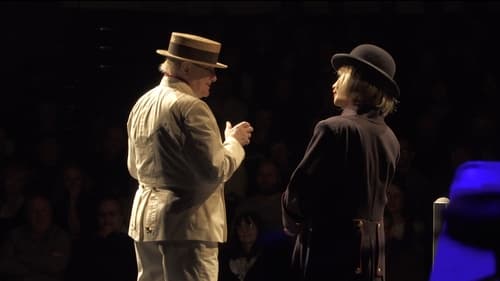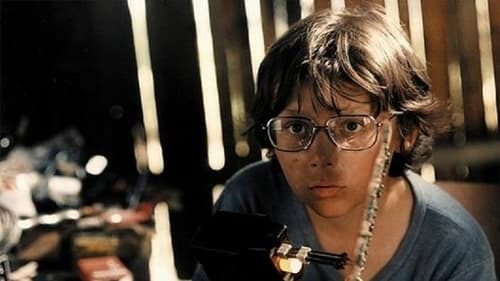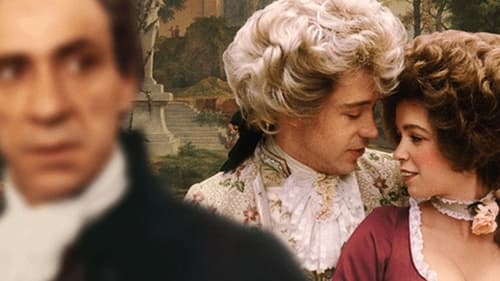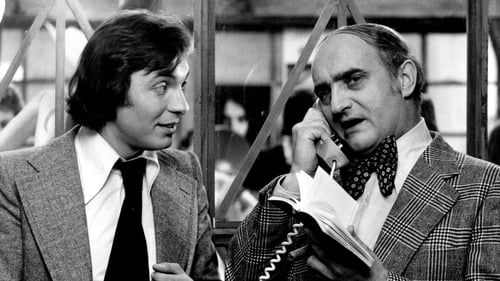
Self

Herself
Theatre personality, musician, poet, writer, graphic artist, collector, self-professed clown, eternally young in spirit – all this is Jiří Suchý, one of the key figures of the domestic cultural scene over the last six decades. He has put on 97 plays at the Semafor theatre and has written the lyrics for 1,400 songs and the music for 500. Today, in an era beset by an onslaught of images that are often of questionable worth, this legendary figure’s tireless efforts to enrich the Czech language and its poetic nuances have been of inestimable value. Olga Sommerová lays before us Suchý’s prolific creative and civic journey through life with the subtle distinctiveness we have come to expect; she also demonstrates her singular flair for capturing exceptional moments.

Self

Self

Evelína

Stage mime Antoine Moreau is compelled by the Gestapo to put on a performance for the children of Terezin, a "model" concentration camp, to convince the Red Cross observers that the camp is truly what it seems. Reluctant at first, Moreau slowly learns the true nature of the camp, including the meaning of the "transports" on which people leave. With a world-class orchestra (made up of people interned in the camp) and a cast of children, Moreau stages a show to end all shows.

In post-WWII Communist Czechoslovakia, several characters considered bourgeois are sentenced to work in a junkyard for rehabilitation. Among them is a young man who pines for a female convict.

Opera singer (voice)
Story about a hard way to the stage. Our hero gives up his job in a restaurant to find fame on fortune at the opera. will he succeed?

Majda Cadová
Children's film about a young boy who moves from the city to the country. At first he finds it difficult to make friends, until others discovers his gift with electronics.

Herself

sudička

(uncredited)
This distinctive documentary portrait of Prague extolls the beauty, significance and spirit of the ancient city adopting modern way of life. The form and content of the film share a common underlining principle. The author doesn't simply list out the sequence of events, but rather approaches them in a broader context of their historic implications and circumstances. The content of the film covers a large period from the pagan times to these days. The facts are grouped under several general headings (paganry, the spread of Christianity, renaissance, baroq and modern times) with allusions to the modern life of Prague and Praguers that has its roots in those times.

Obejda

Czechoslovakian Actor (uncredited)
1823년 눈보라치는 밤, 한 노인이 자살을 시도하다 실패하고 신부에게 자신의 죄를 고백한다. 비엔나 왕실의 궁정음악가 살리에리는 새롭게 떠오르는 천재 작곡가 모차르트의 소문을 듣고 그의 천재성을 확인하려 한다. 모차르트가 그의 약혼녀를 범하고 오만하고 방탕한 생활을 거듭하자 그러한 모차르트에게 천재성을 부여한 신을 저주하고 그를 증오하기 시작한다. 한편 빈곤과 병마로 시달리던 모차르트는 자신이 존경하던 아버지의 죽음에 커다란 충격을 받고 자책감에 시달린다. 살리에리는 이를 이용해 모차르트가 아버지의 환상에 시달리도록 하면서 진혼곡의 작곡을 부탁하는데...

Belzebka

Ms. Otylka

Helena (singing voice)
A musical starring Jiří Menzel (whose part is sung by Achilles Michailidis) as a math and physics teacher employing innovative teaching methods.

Dorotka

Vocals

Three short stories. Prague finally sees the approval of the subway construction. Thousands of individuals took part in preparing, course and finalizing construction of subway and their lives crossed at certain points of this construction.

Vocals
Popelka, a resourceful and independent young girl, is a servant in her stepmother's house and confides her closest friend the owl. When she comes across three magical acorns, she's granted a single wish for each one of them.








